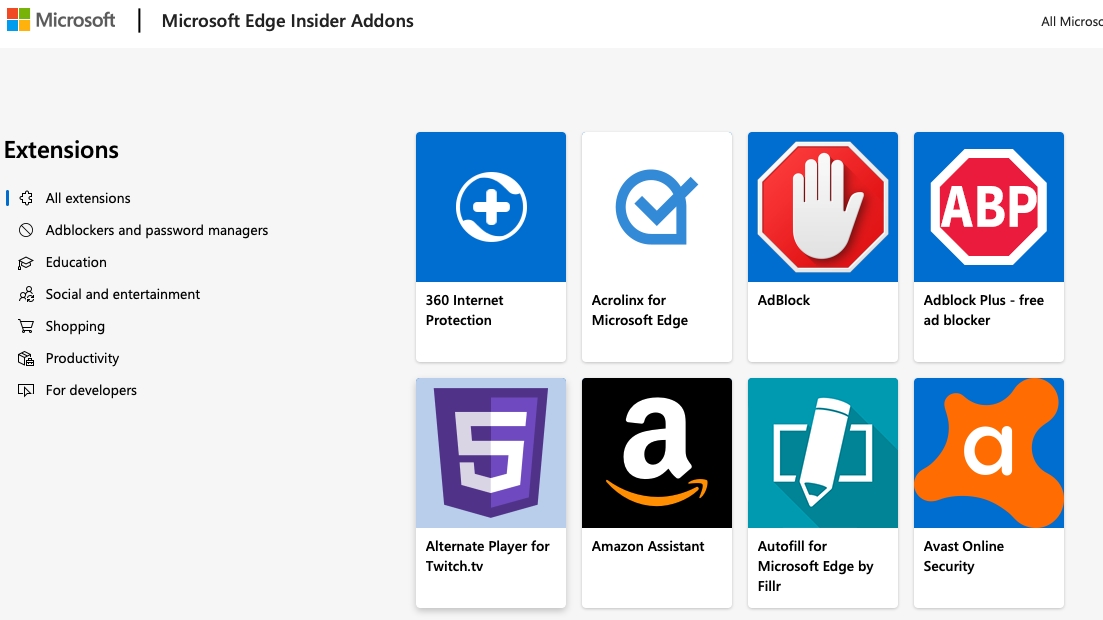Microsoft's Chromium-Based Edge Browser Gets 'Addons'
Microsoft is one step closer to releasing the Chromium-based version of its Edge browser: Twitter user "WalkingCat" discovered a new add-on store for the company's Microsoft Edge Insider build.
WalkingCat tweeted a link to the new Microsoft Edge Insider Addons page the evening of March 13. So far, the page is pretty bare-bones. There's no search, and aside from an alphabetized list of every single extension, there are only six categories to explore.
Those categories are: adblockers and password managers, education, social and entertainment, shopping, productivity, and for developers. (Microsoft appears to be allergic to hyphens since it removed them from both "ad-blockers" and "addons" on the page.)
So far there are 84 extensions, add-ons, addons, or whatever Microsoft plans to call them available via the Microsoft Edge Insider Addons page. That pales in comparison to the Chrome Web Store, but it's not a bad start for the preview Edge browser.
Microsoft said on the Microsoft Edge Insider page that it wants to "create better web compatibility for our customers, and less fragmentation of the web for all web developers," by ditching its old Edge rendering engine and switching to Chromium instead.
Improving compatibility with popular sites--many of which are made by Google and specifically target Chrome--could help Edge become more popular. Offering access to popular extensions would also help, so it makes sense for Microsoft to woo developers early.
Although the Microsoft Edge Insider Addons page might have debuted just a little bit too early: refreshing the page can sometimes lead to a 404 page on Microsoft's website. Maybe the company would've liked a little bit more time to find those hyphens.
Get Tom's Hardware's best news and in-depth reviews, straight to your inbox.

Nathaniel Mott is a freelance news and features writer for Tom's Hardware US, covering breaking news, security, and the silliest aspects of the tech industry.
